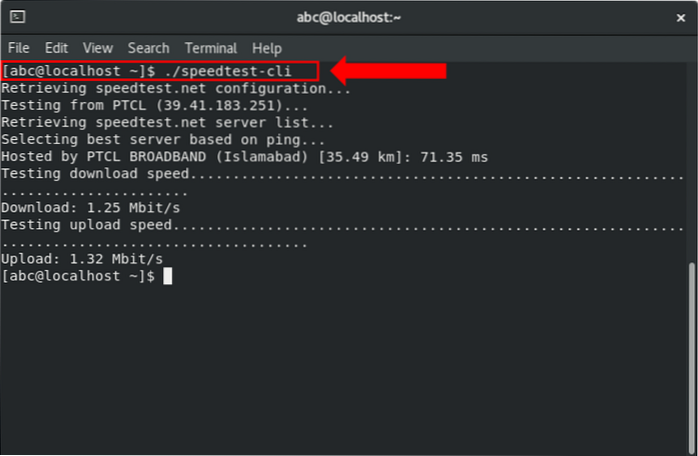- How do I generate a random password in Linux?
- How do I generate a random password in Shell?
- How do I generate a random password using openssl?
- How do you get a random number from Dev random?
- What is Linux password?
- Is password generator safe?
- How do I generate a random number in bash?
- What is Dev random in Linux?
- What command may be used to generate strong user passwords?
- How random is Shuf?
- How use Urandom Linux?
- How random is $random?
How do I generate a random password in Linux?
To generate a random password you can use pwgen : pwgen generates random, meaningless but pronounceable passwords. These passwords contain either only lowercase letters, or upper and lower case mixed, or digits thrown in.
How do I generate a random password in Shell?
In order to generate entire random passwords, we can run apg -a 1, which will give us the passwords with 8-10 random characters. The command we used for this purpose is apg –a 1. We will run and see various passwords generated in the output. The output has many random passwords.
How do I generate a random password using openssl?
The OpenSSL rand command can be used to create random passwords for system accounts, services or online accounts. The rand command outputs num pseudo-random bytes after seeding the random number generator once. You only have to decide the byte-length of your password or string, and OpenSSL does all the calculations.
How do you get a random number from Dev random?
Generating random numbers
You can use /dev/urandom to generate pseudo-random numbers on the command line like this. Commands like this that pull data from /dev/urandom and use od to process it can generate nearly random numbers. Run the same command numerous times and you'll see that you get a range of numbers.
What is Linux password?
The /etc/passwd is the password file that stores each user account. The /etc/shadow file stores contain the password information for the user account and optional aging information. The /etc/group file is a text file that defines the groups on the system.
Is password generator safe?
Overall, it is generally safe to use a password generator for your online accounts. If your password generator's settings are configured to create lengthy passwords containing letters, numbers, and special characters, rest assured it's is generally safe for most purposes.
How do I generate a random number in bash?
Bash: Random numbers for fun and profit
- $ echo $RANDOM 720 $ echo $RANDOM 29582. ...
- #!/bin/bash echo -n "Let's play a game: Pick a number between 0 and 32767: " read a if (( RANDOM == a )); then echo AMAZING, your answer is correct else echo Sorry, that was wrong fi. ...
- $ unset RANDOM $ RANDOM=42 $ echo $RANDOM 42 $ echo $RANDOM 42.
What is Dev random in Linux?
In Linux, the device files /dev/random and /dev/urandom are the userland interfaces to the crypto PRNG which can reliably generate random bits. The kernel maintains an entropy pool which is used to store random data generated from events like inter-keypress timings, inter-interrupt timings, etc.
What command may be used to generate strong user passwords?
pwgen is simple, yet useful command line utility to generate a random and strong password in seconds. It designs secure passwords that can be easily memorized by humans. It is available in the most Unix-like operating systems. There are also some useful options available to use with pwgen command.
How random is Shuf?
The shuf utility shuffles its input by outputting a random permutation of its input lines. According to it's manpage, "Each output permutation is equally likely". ... Because shuf performs a random permutation of it's input. If the input lines contain no duplicates, the output from shuf will contain no duplicates.
How use Urandom Linux?
Configuration If your system does not have /dev/random and /dev/urandom created already, they can be created with the following commands: mknod -m 666 /dev/random c 1 8 mknod -m 666 /dev/urandom c 1 9 chown root:root /dev/random /dev/urandom When a Linux system starts up without much operator interaction, the entropy ...
How random is $random?
Computers can generate truly random numbers by observing some outside data, like mouse movements or fan noise, which is not predictable, and creating data from it. This is known as entropy. Other times, they generate “pseudorandom” numbers by using an algorithm so the results appear random, even though they aren't.
 Linuxteaching
Linuxteaching



